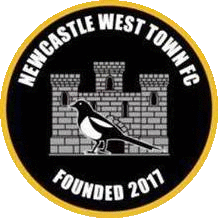Codes of Conduct
Code for Players
To play by the rules
- To never argue with an official. If I disagree, to have my captain, coach, or manager approach the official during the break, or after the match
- Control my temper. I accept that verbal abuse of officials and other players, deliberately distracting or provoking an opponent are not acceptable or permitted behaviours in the Club
- To be a good sport, applaud good play made by either my team or the opposition
- To treat all players and team mates as I would like to be treated
- I will co-operate with my coach, team mates and the officials of the club
- To respect the rights, dignity and well-being of all participants regardless of their gender, cultural background, ability, or religion
- If I have concerns to talk to my coach or to a member of the committee.
Code for Parents
- To remember that children participate in sport for their enjoyment, not mine
- To encourage children to participate, not force them
- To focus on the child’s participation, and not on winning and losing
- To encourage children to always play according to the rules and to settle disagreements without resorting to hostility or violence
- To never ridicule or shout at a child for making a mistake or losing a competition
- To remember that children are led by example
- To support all efforts to remove verbal and physical abuse from sporting activities
- To respect the officials’ decisions and teach children to do likewise
- To show appreciation for volunteer coaches and officials
- To respect the rights, dignity and worth of every young person regardless of their gender, cultural background, ability, or religion
- If I have any issues to do with my child, I will discuss with their manager or a committee member
- Not to discuss other players in public
- To support my child’s manager, and be proud of my child’s progress at all times
- To support the club in the long term football development of my child.
Code for Coaches
- Remember that as a coach of under-age teams you must act in “loco parentis” and to that extent your duty of care is more onerous than that of a coach to an adult team.
- Remember that young people need a coach whom they can respect. Lead by example.
- Be generous with your praise when it is deserved.
- Never ridicule or shout at players for making mistakes or losing a match.
- Teach your players that the Laws of the Game are mutual agreements, which no one should evade or break.
- Be reasonable in your demands on the players’ time, energy and enthusiasm. Remember that they have other interests and demands on their time.
- Prepare young players for inter-class and inter-school activities.
- Ensure that all players participate in matches. The “average” players require and deserve equal time.
- Remember that young players play for fun and enjoyment and that skill learning and playing for fun have priority over highly structured competition – Winning is not the only objective.
- Develop player and team respect for the ability of opponents, as well as for the judgement of Match referees, assistant referees and opposing coaches.
- Insist on fair play and disciplined play. Do not tolerate foul play, fighting or foul language.
- Be prepared to take off an offending player
- Set realistic goals for the team and individual players and do not push young players into adult like competitions.
- Encourage young players to develop basic skills and sportsmanship. Avoid over specialisation in positional play during their formative years.
- Create a safe and enjoyable environment in which to train and play.
- Do not over-burden younger players with too much information.
- Make a personal commitment to keep yourself informed on sound coaching principles and methods, and on the principles of growth and development of young people.
- Be aware of the effect you have on growing children.
- Never criticise the referee or assistant referee during or after a match in front of players or spectators.
- Always thank the match officials and if they have made decisions which require clarification, discuss the problems after everyone has changed.
- Seek and follow the advice of a doctor in determining when an injured player is ready to play again.
- Ensure that proper equipment and facilities are available at all times
- Ensure that all your players know that bullying whether verbal or physical will not be tolerated.
